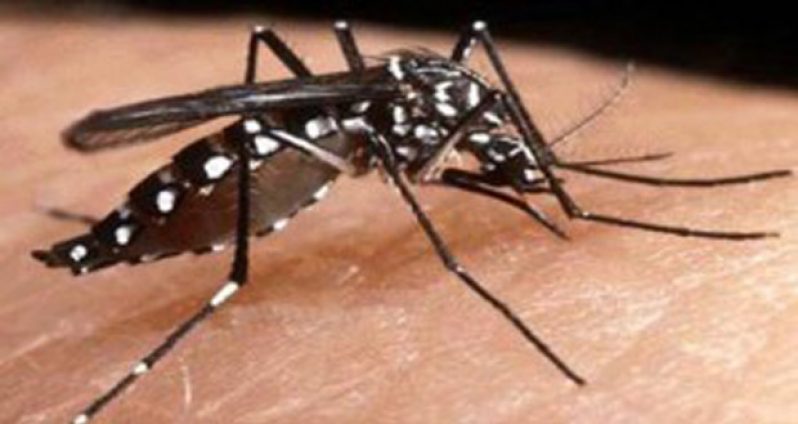By Navendra Seoraj
GIVEN the recent revelation that over 1000 persons in Suriname have been affected by the Zika virus, the Regional Health Authority of Region Six (East Berbice-Corentyne) has ramped up its precautionary measures by quarantining and assessing all travelers from Suriname.Director of Health Services in the region, Jevon Stephens disclosed that subsequent to the news of persons being affected with virus in Suriname, “we increased the number of health officers at the Molseon Creek port and are quarantining everyone.”
Stephens added that so far no one has been detected with the virus, but they are closely monitoring everyone who turns up at a regional hospital with symptoms similar to that of the virus. The Zika virus, he emphasised, should not be taken lightly, that’s why they began several outreach programmes to sensitise persons on how to take the necessary precautionary measures.
Meanwhile on Monday, the head of the Academisch Ziekenhuis Paramaribo Lab in Suriname confirmed that there are several cases of the Zika virus. According to a Caribbean News Now report, John Codrington bases his estimate on the hundreds of testing applications the lab has received. Some of those who have tested positive include pregnant women.
Based on what is happening in Brazil with the surge in microcephaly cases seen this year, the Bureau of Public Health Care is advising women to delay pregnancy as a precautionary measure in the short term.
Surinamese health officials have announced an action plan that focuses on fighting the mosquito that transmits the Zika virus, and on educating the community, Caribbean News Now has said. Puerto Rico yesterday confirmed its first case of the mosquito-borne virus, which has been spreading across South America and the Caribbean, and has been linked by Brazilian authorities to a serious birth defect.
In addition to Brazil, Suriname and Puerto Rico, other countries in the Americas report confirmed cases of Zika, including Chile, Colombia, Panama, El Salvador, Guatemala, Mexico, Paraguay and Venezuela, Caribbean360 said.
TREATED NETS
However, according to Minister of Public Health Dr. George Norton, the Ministry has recently taken a decision to distribute the insecticide-treated bed nets at health centers across Guyana. “When pregnant women attend their regular clinics, they will be given the treated mosquito nets so they can use within their homes,” the Public Health Minister explained.
Additionally, the Public Health Ministry will spearhead fumigation, commonly known as fogging, in and around Georgetown. Fumigation is a method of pest control that completely fills an area with gaseous pesticides — or fumigants — to suffocate or poison the pests within the area.
Persons who travel to Guyana should inform the Port Health Authority at the airport, seaport or land crossing or contact the nearest health facility, if they had symptoms of fever within the last week. The necessary advice and follow up care would be provided.
Particularly, the MoPH is advising that all pregnant women and children should sleep under a mosquito net. The Zika virus causes some abnormalities in developing fetuses so it is now strongly recommended that all pregnant women avoid being bitten.
Natural substances, household insecticidal sprays, coils, candles, among other things, can assist in reducing the presence of mosquitoes around the home. Screening of windows, doors and other openings along with closing-up in the evening can aid in the reduction of mosquitoes in the home. In order to control the spread of the Aedes aegypti and Aedes polynesiensis mosquitoes, persons should conduct systematic searches in and around their environment for any stored or exposed bodies of water and immediately remove these sources of mosquito breeding.
Additionally, persons should clear their environs of tyres, punch holes in discarded containers and properly cover containers with stored and drinking water. They should pour a little oil in contained water for domestic use, and change water regularly in vases, pet containers and plant saucers.




.png)









